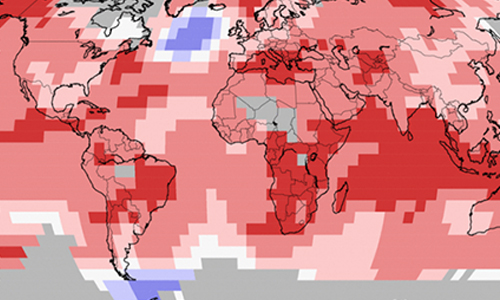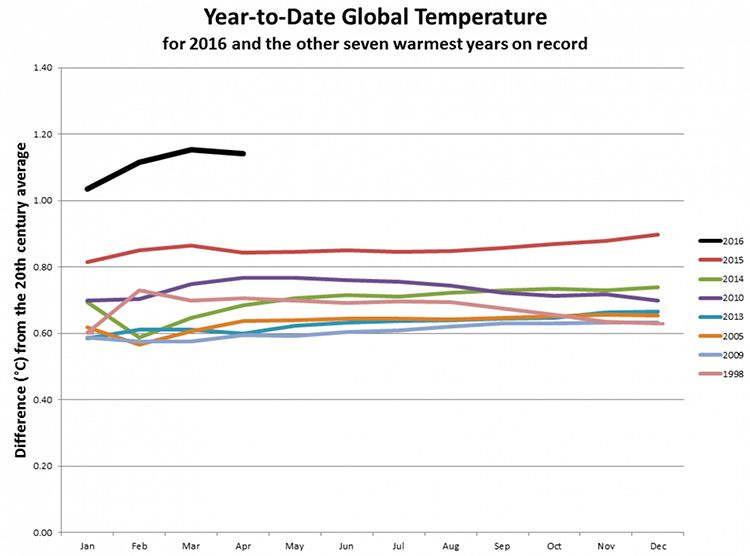

According to the National Oceanic and Atmospheric Administration (NOAA), April 2016 was the 12th consecutive month to break previous heat records, breaking the 1901-2000 long-term average by a record amount.
There is now a 99 percent likelihood that 2016 will become the hottest year on record. NOAA also said the global average carbon dioxide concentration reached 399 parts per million in 2015.
“We’re dialing up Earth’s thermostat in a way that will lock more heat into the ocean and atmosphere for thousands of years,” Jim Butler, director of NOAA’s Global Monitoring Division, said in a statement.
For a deeper dive: AP, Washington Post, Bloomberg, USA Today, Climate Central, Mashable
For more climate change and clean energy news, you can follow Climate Nexus on Twitter and Facebook, and sign up for daily Hot News.
YOU MIGHT ALSO LIKE
Al Gore’s Groundbreaking Film … 10 Years Later
NPR: Rising Sea Levels Made This Florida Mayor a Climate Change Believer
Historic Victory: 4 Teenagers Win in Massachusetts Climate Change Lawsuit

 233k
233k  41k
41k  Subscribe
Subscribe 

